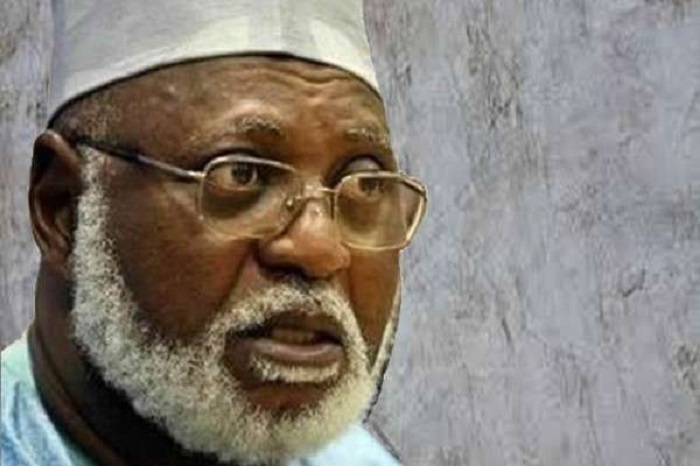



A former Head of State, Gen. Abdulsalam Abubakar (Rtd) had blamed the worsening security challenges on dire economic situation of the nation.
Abdulsalam made this known Thursday while speaking at the event of the 19th Daily Trust Dialogue organized by Media Trust Limited in Abuja with the theme: “2023: The Politics, Economy and Insecurity”
Abdulsalam who chaired the dialogue also said the proliferation of all calibre of weapons in Nigeria in particular, and in the West Africa sub-region generally was a major cause of the insecurity in Nigeria.
His words, “Insecurity in the country is worsened by our dire economic situation. In the past three months or so, economic growth rates and inflation have improved somewhat.
“The economy grew by between 4 and 5% since June last year, continuing the recovery from the near economic collapse of 2020. Inflation figures have also dropped to 15.4% from a four-year high of 18.17% in March 2021.
“All of these figures are contained in the 2022 Budget Breakdown and Highlights presented by the Honourable Minister of Finance, Budget and National Planning early this month.
“But the impact of these numbers on the lives and wellbeing of the ordinary Nigerian is suspect. Unemployment and underemployment remain at the record levels, and over 80 million Nigerians are still caught up in needless poverty.
“All of these tend to have negative effects on security. In fact, Nigeria now faces a food security crisis that is compounded by the COVID-19 global pandemic and banditry in many states of northern Nigeria.
“Both of these have disrupted the fragile value chains across the country and negatively impacted the ability of Nigerians to produce, process, and distribute food. The result is a continuing rise in the prices of food items beyond the reach of many Nigerian families” he noted.
Continuing, he expressed concern that fuel prices which were expected to increase soon would sink many Nigerians into poverty.
“On top of all these, fuel prices are expected to rise significantly in the coming months as announced last November by the NNPC. When this happens, as the government has planned, it will push many millions deeper into poverty.
“Young people and women are the demographic groups most affected by the country’s dire economic outlook. For example, estimates by the National Bureau of Statistics shows that while the national unemployment rate stood at 33% by the end of 2020, unemployment for young people between ages 15 and 34 years was 10% higher at 42.5%” he noted.
Speaking also, Governor of Borno State, Prof. Babagana Zulum said that good governance is highly critical and leaders should always strive to provide it at all time.
A former Vice President, Alhaji Atiku Abubakar who said he has not seen the nation embroiled in this kind of precarious situation said he had that conviction that things will normalize with right leadership in place.
Sultan of Sokoto and President, Nigerian Supreme Council of Islamic Affairs (NSCIA) His Eminence, Alhaji Muhammad Sa’ad Abubakar 111 stated the need for dialogue as a way of resolving issues that borders on national unity.
Former chairman of Federal Inland Revenue Service (FIRS), Mrs. Ifueko Omoigui Okauru who was a panelist stated that for a nation to make desired progress, it must have a system whereby production will feed consumption.
Another panelist, Hakeem Baba Ahmed said that the proposed 2022 census should be postponed given the fact that the 2023 election was close.
He said that any increase on fuel price will create additional anger among the populace.
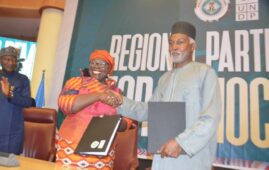

Nigerian Foreign Minister has stressed the.


Nigerian government has reiterated its commitment.



Anti – kidnapping, Human Trafficking, Child.
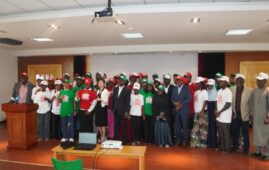

Chinese and African intelligentsia have shared.
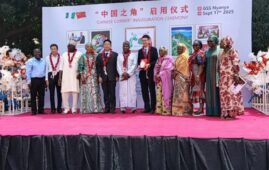

FCT Mandate Secretary for Education, Dr..
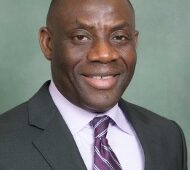

Nigerian government has formally added the.
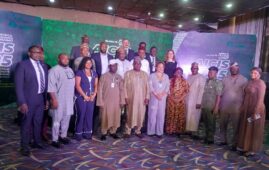

Nigerian President, Bola Ahmed Tinubu has.



The Anti – kidnapping, Human Trafficking,.


An NGO in the forefront of.


The Deputy Director of Nutrition, Federal.
Leave a Comment